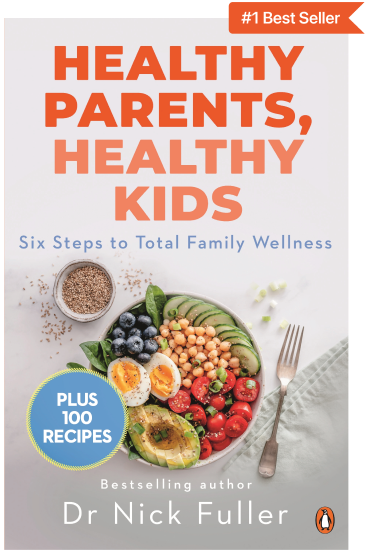Why Toddlers Refuse Meat And What To Do

Dr Nick Fuller
Leading Obesity Expert at the University of Sydney and founder of Interval Weight Loss.

Let’s be honest: getting a toddler to eat meat can feel like you’re a star in your own episode of MasterChef: Picky Eaters Edition. One minute they’re nibbling on a meatball like a mini foodie, and the next, they’re flinging chicken across the room like it’s part of the décor. If this sounds familiar, you’re not alone.
In fact, studies show that up to 50% of toddlers are considered picky eaters, and meat is often the first thing to get rejected. Research also found that most toddlers aren’t meeting their daily iron needs, and low meat intake, particularly red meat, is a big reason why.
The good news? You don’t need to stress. There are plenty of simple strategies that can help, even if your toddler turns into a food critic at dinner. From texture issues to toddler-sized power struggles, we’ll cover why meat might be getting the cold shoulder and what you can do to turn things around.
Toddler Saying No to Meat? Here’s Help That Actually Works
If your toddler refuses meat, you’re definitely not the only one dealing with it. Healthy Parents, Healthy Kids by Dr Nick Fuller offers practical tips and clever swaps to help boost protein without the mealtime drama. It’s packed with ideas to keep nutrition on track—even when meat is off the menu.
Get your copy of Healthy Parents, Healthy Kids and feel more confident at mealtimes, meat or no meat.
6 Common Reasons Toddlers Refuse Meat
Some toddlers go off meat completely, and it’s not just a random phase. Let us break down what might be going on.
Dislike of Texture
Meat can be chewy, stringy, or dry, especially if it's overcooked. Toddlers are still figuring out textures, so meat might feel too weird or too much to handle.
Preference for Other Flavours
Sweet potato? Yum. Plain chicken breast? Eh, not so much. Toddlers are naturally drawn to sweet, mild flavours. Meat can seem too bland, too strong, or just not as exciting.
Difficulty Chewing
Chewing takes effort. If a toddler is still getting the hang of their molars, meat might feel like hard work compared to soft foods like yoghurt or mashed veggies.
Slow Introduction
If meat wasn’t introduced early (ideally around 6 months when solids begin), it might feel foreign. According to the Australian Infant Feeding Guidelines, early introduction of iron-rich foods, including meat, helps kids accept them more easily.
Overwhelming Portion Sizes
Big chunks of steak or chicken can feel like a mountain on their plate. If it looks too big, they might not even try.
Autonomy and Control Issues
Toddlers love saying no, and food is one of the few things they can control. Refusing meat might be less about the meat and more about asserting independence.
What Happens When Toddlers Don’t Eat Meat?
Meat isn't essential for every child, but it does make things easier when it comes to key nutrients. If your toddler is skipping it regularly, here’s what to keep an eye on:
Protein Deficiency
Protein is vital for growth and tissue repair. Most toddlers need about 13-14 grams of protein a day, roughly the amount in one egg, a slice of cheese, and a few bites of chicken.
Iron Deficiency
Iron is essential for energy and brain development. A study found that iron deficiency is common in toddlers who don’t eat meat. Symptoms include fatigue, pale skin, and frequent illness.
Lack of Essential Amino Acids
Meat contains complete proteins, meaning all nine essential amino acids. Plant proteins often lack one or more, so mixing different sources is important for veggie eaters.
Low Intake of B Vitamins
Meat is a top source of B12, which helps with nerve function and red blood cell production. B12 is only found in animal products, so vegetarian toddlers may need supplements.
Reduced Omega-3 Fatty Acids
Red meat and oily fish contain omega-3s, which are great for brain development. While there are plant-based options like chia and flax seeds, the conversion rate in the body is lower.
If your child isn't getting enough nutrients from food, certain supplements can help fill the gap. Read this article to find out more.
10 Smart Ways to Encourage Meat Consumption
You don’t need to push, bribe, or beg. These tried-and-tested tips can make meat a little more toddler-friendly.
Don’t Force It
Pressure can backfire. Let them explore meat without expectations. Even touching it is a step forward.
Repeated Exposure
It can take 10–15 tries before a toddler accepts a new food. Keep offering small tastes without making a fuss.
Small Portions
Cut meat into tiny pieces—think pea-sized. It’s less intimidating and easier to chew.
Serve with Dips
Meat plus hummus, tomato sauce, or avocado mash? Now you’re talking. Dips make everything more fun.
Use Minced Meat
Minced beef, chicken, or lamb is easier to chew and can be mixed into pasta, rice, or soft tacos.
Offer Soft Meat
Think slow-cooked lamb, tender chicken thigh, or pulled pork. Soft textures are toddler-approved.
Involve Your Child
Let them help with shopping, mixing, or plating their food. Kids are more likely to eat something they helped create.
Provide Protein Alternatives
Eggs, tofu, beans, lentils, cheese, and yoghurt are all solid alternatives if meat is still a no-go.
Set an Example
If you're enjoying meat at the table, your toddler might copy you. Toddlers are master mimics.
Eat Together
Family meals create a relaxed vibe. Seeing others eat the same food encourages toddlers to give it a go.
Summing Up
Meat refusal isn’t the end of the world; it’s often a phase or a sign your toddler needs a bit of support. Understanding the why behind it makes it easier to find a solution that works for your family. With the right strategies (and a little patience), you’ll be back to stress-free mealtimes in no time.
Stay informed with fresh tips, expert guidance, unique deals, and tailored support!
Meet Dr Nick Fuller
My Story
As a father, I know first-hand that raising healthy and happy children is tricky. Children are fussy, particularly at the end of the day when they are shattered. We also live in a society where companies seek to profit from what we feed our kids; incorrect and damaging advice is pushed on us and marketed towards our children, and we have no time.
But with these recipes and resources, you and your children can enjoy simple and well-founded food and lifestyle choices for lifelong health.

About Dr Nick Fuller
Dr Nick Fuller is the founder of Interval Weight Loss and is a leading obesity expert at the University of Sydney with a Ph.D. in Obesity Treatment. Dr Fuller is also the author of three best-selling books and his work been published in top ranked journals in the medical field, including JAMA, Lancet and American Journal of Clinical Nutrition.
